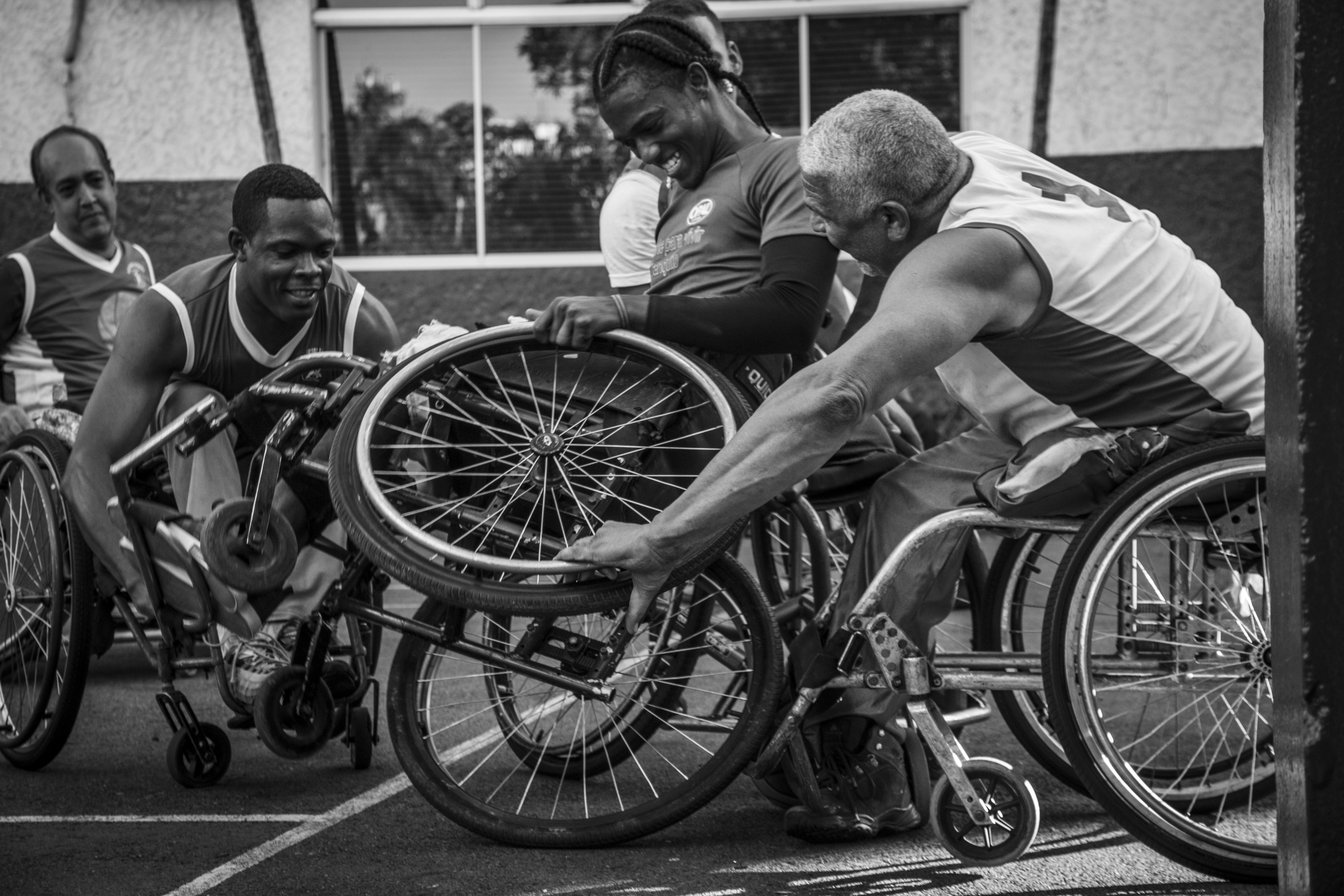The Underdog Psyche: How Beliefs Propel Teams to Victory
In the world of sports, the term "underdog" evokes powerful narratives that inspire passion, loyalty, and even hope. These teams, often underestimated or overlooked, defy expectations and capture the hearts of fans and analysts alike. What truly shapes the performance of these underdog teams? Enter the realm of belief systems and the psychology behind team dynamics. Understanding how these frameworks influence everything from gameplay to fan engagement can unlock invaluable insights for coaches, players, and spectators.
The Power of Belief Systems in Sports

At the heart of the underdog narrative is belief—a powerful force that can significantly influence team dynamics and performance. When a team believes it can win, even against formidable opponents, that belief transforms into shared energy, self-confidence, and resilience. A classic example is the 2004 Boston Red Sox, who, after enduring an 86-year championship drought, came from behind against the New York Yankees and ultimately claimed the World Series title. Their improbable journey can be traced back to a deep-seated belief system that shifted when they overcame an initial 3-0 deficit.
Understanding how belief influences performance in sports is an ongoing area of study within sports psychology. Teams that cultivate a strong sense of shared identity and purpose are often more resilient in the face of adversity. When players view themselves collectively as underdogs, it can foster a culture of support and camaraderie, enhancing overall performance.
The Psychology of Team Dynamics: A Closer Look

Team dynamics are complex, shaped by personalities, interpersonal relationships, and, crucially, collective beliefs. Research indicates that when team members share a common narrative—that of being the underdog—they're more likely to motivate and inspire one another. This goes beyond mere optimism; it's the foundation of a formidable team culture.
One fascinating study by the Harvard Business Review highlights how narratives of resilience can significantly change a team's trajectory. The authors found that teams that embraced their underdog status were more likely to push through challenges and achieve performance milestones. This intriguing cycle of motivation and achievement illustrates how underdog identities can transform mindsets and fuel success in sports settings.
Furthermore, the mental framework around being an underdog can yield valuable lessons for other teams and coaches. One instance is the late inclusion of rookie quarterback Nick Foles into the Philadelphia Eagles' starting lineup during the 2018 season. Foles not only led the team to a Super Bowl victory but also embraced his underdog story, rallying his teammates with a belief that they could triumph against the defending champions, the New England Patriots.
Fan Engagement: The Underdog Effect

One cannot discuss the psychology of the underdog without touching on fan engagement. Underdog teams tend to rally supporters who relish the thrill of an unexpected victory. This interplay between belief and support creates a rich tapestry of grassroots movements, community involvement, and vibrant social narratives. Fans become emotionally invested in the journey toward success, often pouring their hearts into supporting teams that embody hope and perseverance.
The enthusiasm surrounding underdog achievements goes beyond mere fandom; it drives ticket sales, merchandise, and social media engagement. As noted in this article from Forbes, the financial impact of successful underdog narratives can sometimes outweigh that of traditionally celebrated teams.
Coaches: Cultivators of Team Belief

The role of coaches in shaping belief systems within teams cannot be understated. Coaches often function as architects of team culture, instilling a mindset that balances ambition with realism. Legendary coach John Wooden famously said, "Things work out best for those who make the best of how things work out." This highlights the importance of nurturing a growth-oriented mindset, particularly in underdog scenarios.
A prime example lies in the 2011 NCAA basketball tournament, often referred to as "March Madness." The No. 11 seed VCU Rams made an impressive run to the Final Four, fueled by a belief instilled by their coach, Shaka Smart. His emphasis on collective grit and resilience allowed the Rams to exceed expectations, showcasing the impact of coaching on underdog psychology.
Ultimately, successful coaches harness the power of belief to create a unifying narrative and compel athletes to achieve phenomenal feats against the odds. In doing so, they are not just fostering a team but an entity that embraces its challenges and thrives under pressure.
Anecdotes of Unexpected Victories

History is ripe with tales of underdogs who triumphed against seemingly insurmountable odds. The most famous victory story in sports history is arguably the 1980 U.S. Olympic Hockey Team, known as the "Miracle on Ice." A team of amateur players defeated the heavily favored Soviet Union, a moment etched in time that makes us ponder the deeper psychology of belief.
Moreover, consider the Cinderella stories in various sports, such as the Leicester City Football Club winning the Premier League in 2016. Against all odds, this underdog team rallied together, driven by unwavering belief and a strong sense of collective identity.
These stories resonate far beyond the sports world, embodying universal themes of hope, grit, and perseverance. They remind us all of the inherent potential that exists within every team, waiting to be tapped.
The Media Narrative: Fueling the Underdog Story

Media plays a pivotal role in shaping the narrative surrounding underdog teams. Coverage often concentrates on these resilient fighters, embedding their stories into the fabric of sports culture. For instance, the portrayal of the Cleveland Cavaliers' comeback against the Golden State Warriors in the 2016 NBA Finals fueled discussions around belief systems, pressure, and identity.
As narratives evolve, media outlets can influence public perception and fan engagement. The stories shared during playoff seasons can amplify support for these teams and elevate their status from underdogs to resilient contenders. This reflects a greater human narrative, emphasizing the desire to witness and be part of a transformative journey.
External link research shows that narratives surrounding underdogs can have real-world implications. An analysis of media sentiment around sports events often indicates a stronger engagement and emotional connection with underdogs, which can lead to greater merchandise sales and ticket purchases.
Next Steps: Shaping the Underdog Experience

So, how can teams leverage the psychology of the underdog for future success? Here are some actionable insights:
-
Cultivate a Growth Mindset: Foster environments that model learning from setbacks. Encourage players to view challenges as opportunities for growth.
-
Enhance Team Cohesion: Create spaces for team bonding, where athletes can share experiences and reinforce their collective identity.
-
Develop a Strong Narrative: Coaches should formulate compelling stories that emphasize resilience and unity, enhancing team and fan connections.
-
Encourage Positive Communication: Maintain open communication channels within the team, cultivating trust and support—essential factors for overcoming hurdles.
-
Utilize Media Platforms: Engage with fans through social media and press coverage, helping establish a story that encourages mutual support between players and the community.
These steps can harness the power of belief and create a dynamic environment conducive to underdog triumphs.
Final Thoughts
The psyche of the underdog offers a fresh lens through which we can assess the dynamics of sports performance and communities in action. The unique belief systems that drive these teams—while often overlooked—are potent motivators that ignite passion in fans and athletes alike. As we continue to celebrate the stories of underdogs achieving the impossible, let us recognize the intricate interplay of psychology, team dynamics, and belief that lies at the heart of these narratives.
Whether you're a coach, a player, or an avid fan, harnessing the insights from underdog experiences can influence success far beyond the scoreboard. After all, in the world of sports, belief is often the first step toward changing the game.



